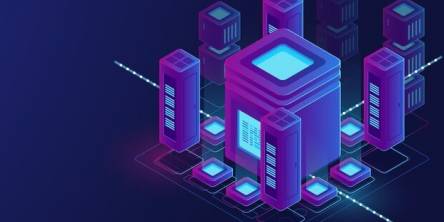7 Reasons to Go For Laravel eCommerce Development

Ecommerce businesses can provide excellent customer experience and boost revenue through secure and appealing websites & applications. Whether you wish to launch a new eCommerce platform or update the existing online store, you should think of all the possibilities to make it useful and efficient.
As part of this, companies build eCommerce solutions using frameworks such as Laravel or other ready-made CMS. However, it is essential to choose the right development technology to maximize ROI.
Why choose Laravel over ready-made CMS to develop eCommerce web-stores
Sometimes businesses prefer ready-made CMS for their eCommerce store development due to its simplified content management, availability of numerous plugins, and short project schedule. However, they end up paying a massive amount for web store customization and maintenance. Moreover, such ready-made CMS causes performance and security related issues.
Laravel framework provides solutions for each type of enterprise eCommerce requirements. Let us look at the reasons why Laravel eCommerce is better than ready CMS.
1. Scalability
Ecommerce store owners regularly add/remove products, suppliers, and other inventory-related information. To update such data on online stores, they require scalable solutions. Laravel’s modularity and MVC architecture help developers to build eCommerce web-store that can be updated with new features as the business grows.
Lumen and other such Laravel-based micro-frameworks enable enterprises to create and manage web applications with a micro-services architecture. Laravel framework, thus, empowers the eCommerce applications to handle thousands of users at the same time.
2. Ample Options for Customization
Laravel eCommerce comes with plenty of options for eCommerce platform designs. Businesses can showcase brand products as per their requirement and interest. The in-built product search, checkout, and other options, as well as online shop packages such as AvoRed and Aimeos, help to build fully functional shopping carts. A development team can even create custom components based on project needs.
Laravel’s eCommerce templates get designed keeping in mind the usability that helps to streamline the shopping and navigation experiences.
3. Omnichannel Support
The custom Laravel packages help to reduce time & efforts required for the coding of an online eCommerce store. Such a pre-ready baseline boosts the development process and helps to focus on creating an Omnichannel experience for customers.
Developers can build an Omnichannel eCommerce network using Laravel open-source CMS with the integration of physical and digital stores. As a result, businesses can attract & retain customers by providing a seamless experience across devices.
4. Platform Independence
The ready-made CMS often causes unwanted updates in web applications. This process creates unnecessary changes in the app, and the web-store experiences downtime until the update finishes. Laravel offers to build independent eCommerce solutions that allow avoiding needless updates and running your online store smoothly.
5. Flexible Shopping Cart Management
Laravel framework comprises of pre-set codes for basic eCommerce functionalities such as inventories, products, shopping carts, payment gateways, and more. It helps to customize the workflows as per the current and future requirements.
6. Security
Laravel framework supports the integration of popular payment gateways such as PayPal, Stripe, and more to benefit both businesses and their customers. It helps customers to pay through their preferred payment option and companies to improve conversion rates and sales. Moreover, developers can integrate back-office systems, analytics tools, mailing services, and other third-party systems with Laravel APIs.
Laravel is a go-to framework to protect eCommerce web-store against common security vulnerabilities. It assists businesses to use the data of customer purchase history and personalize their shopping experience.
7. Large Community Support
Laravel has tremendous community support that helps developers to get the solutions for their bugs and security related issues. The community regularly provides updates, guidance, current market trends, and other relevant information that helps to create robust eCommerce solutions.
Conclusion
Though the choice of Laravel or ready-made CMS for eCommerce development depends on the project requirements and preferences, Laravel can be the best web framework to create next-gen eCommerce web-stores.
Laravel contains all the required features and functionalities that help to build elegant eCommerce applications at a rapid pace. As part of this, a reliable technology partner can help with the custom Laravel development services to create cost-effective and scalable solutions.
Similar Articles
In the fast-paced world of supply chain management, it is vital to coordinate logistics operations for businesses aiming to meet customer demands, reduce costs, and stay competitive.
The handling of projects may be characterized as a laborious and complex responsibility. From the formation of employment positions through allocating resources for managing work in progress, significant amounts of business hours and resources are used.
Discover the perfect project management software for your business with our guide. Explore key considerations to streamline your projects effectively. Choose wisely
Unless you live under a rock, you know that television and the overall idea of content consumption have changed drastically and beyond anything we would have imagined three to four decades ago. Over-the-top (OTT) apps continually reshape today's future of television
Unless you have been living under a rock, you know that the modern world has come to rely on mobile apps immensely. From simply being able to send texts to people over the internet to wiring money across the globe — mobile apps help us do it all.
We live in an immensely technologically advanced age. This is why it is no surprise that a rapidly growing number of companies are increasingly deliberating on the big question: is it time to migrate their legacy systems? While we cannot say why an individual company would need to migrate its systems, we do know why most companies want to migrate its legacy systems
Blockchain technology and the concept of a decentralized "Web3" internet have generated tremendous hype and interest in recent years. Beyond cryptocurrencies like Bitcoin, the potential for decentralized applications built on blockchain platforms has been driving innovation.
In today's digital age, a compelling logo is essential for any business or brand looking to establish a strong online presence. Your logo is often the first thing that potential customers see, and it can significantly impact their perception of your brand.
In an era where digital assets and data are the lifeblood of businesses, ensuring robust cloud security has never been more crucial. As a rapidly growing number of companies and other entities in the world embrace cloud computing, it has become vital to focus on the one factor that remains all-important, no matter the technology involved: security.









